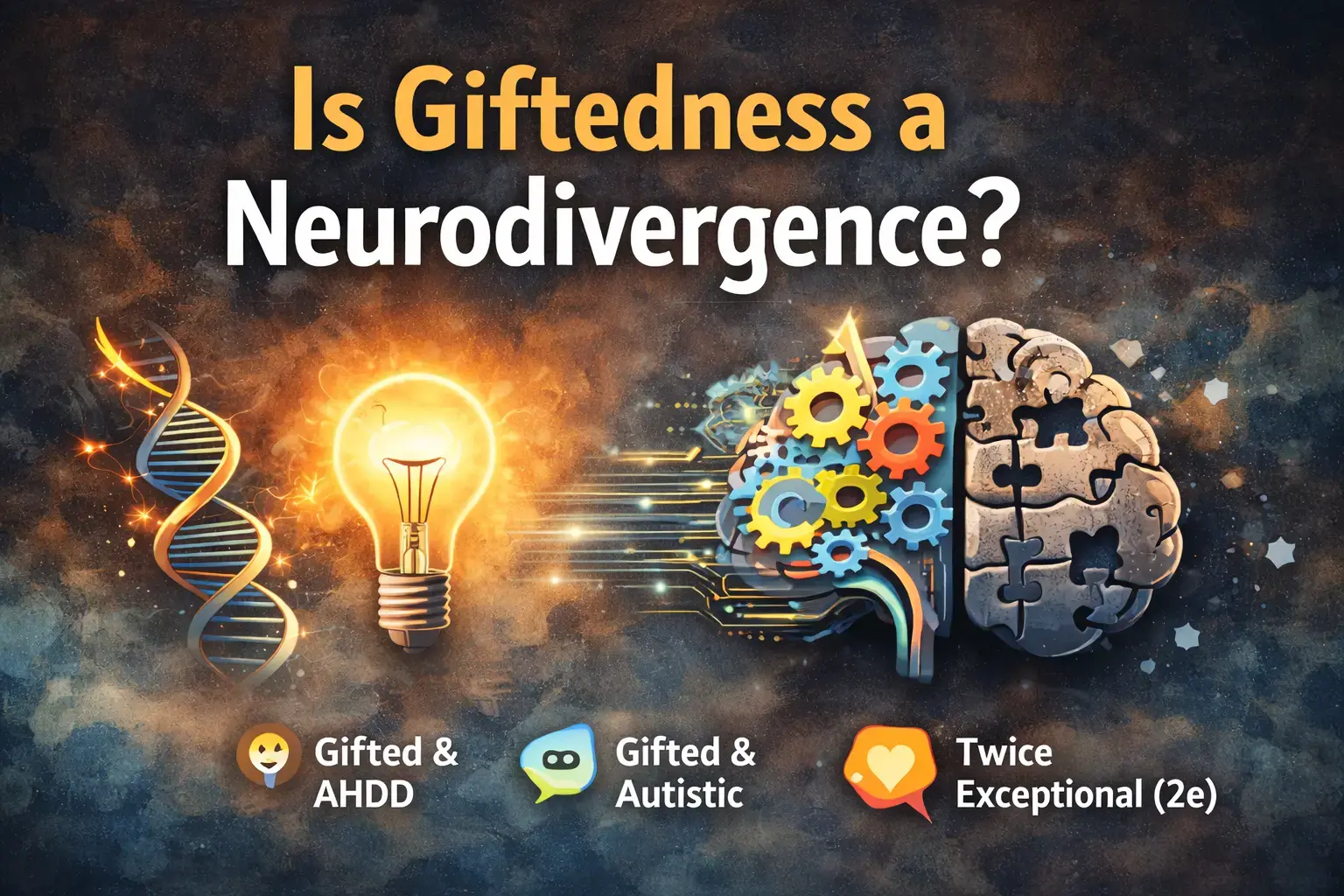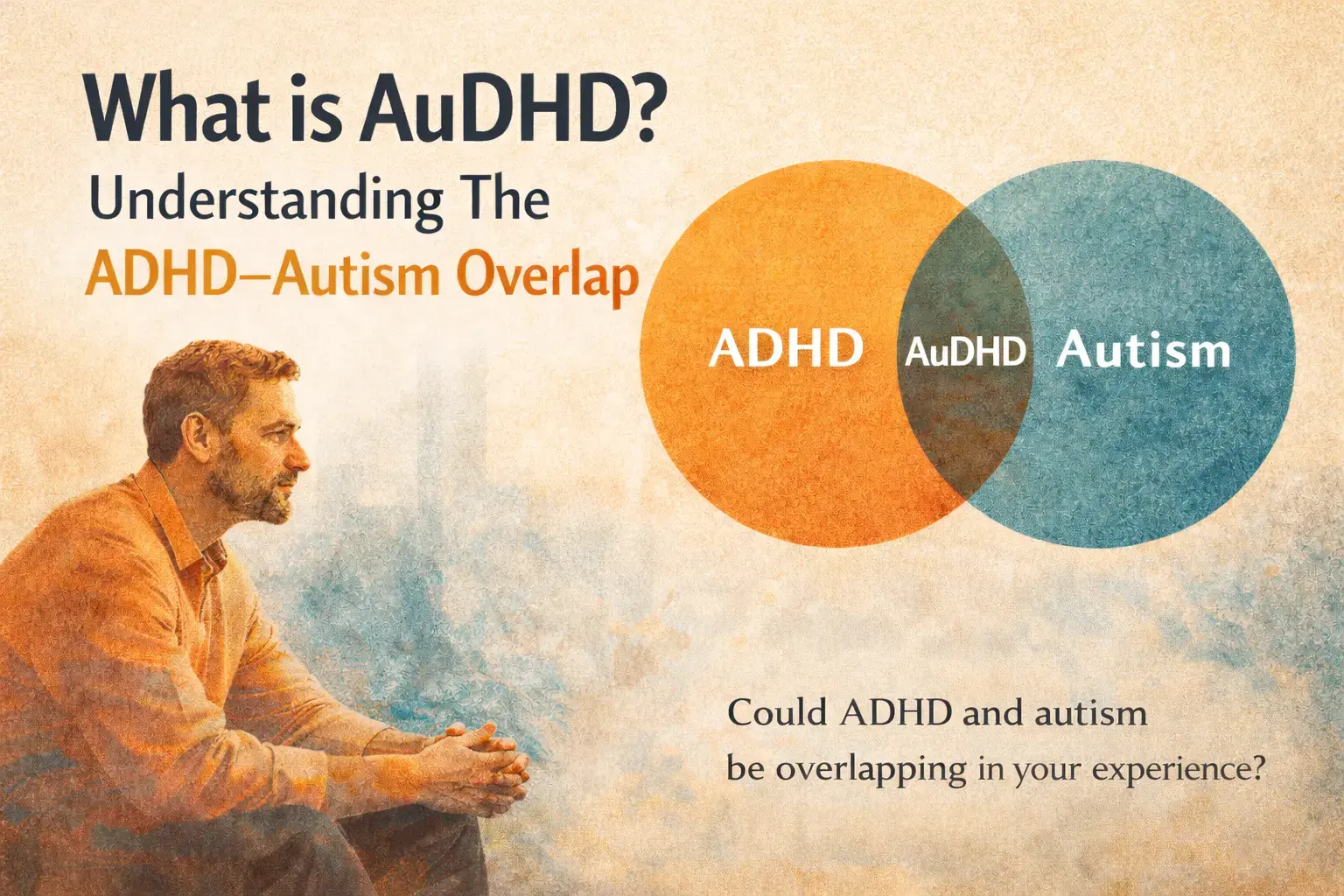Summer Struggles for Neurodivergent Adults: How Therapy Helps
While summer often represents freedom and relaxation for many people, neurodivergent adults frequently experience this season as a time of heightened challenges and increased stress. The disruption of familiar routines, intensified sensory experiences, and elevated social expectations can create significant difficulties for adults with autism, ADHD, and other neurodivergent conditions. Understanding these seasonal struggles and accessing appropriate neurodivergent adult therapy can make the difference between surviving summer and thriving during these warmer months.
You may also find value in my guide to environment and sensory regulation in Sensory-Safe Spaces at Home.
Michael Holker, a therapist specializing in neurodiversity-affirming care, recognizes that summer presents unique challenges often overlooked by mainstream mental health approaches. "Many neurodivergent adults come to therapy in July and August feeling like they're failing at summer," he explains. "They see everyone else seemingly enjoying the season while they're struggling with overstimulation, schedule changes, and social pressures."
Understanding Summer's Impact on Neurodivergent Adults
The summer season brings multiple environmental and social changes that can be particularly challenging for neurodivergent individuals:
- Disrupted daily routines due to vacation schedules and flexible work arrangements
- Increased sensory input from heat, humidity, bright sunlight, and outdoor activities
- Higher social demands, including family gatherings and community events
- Pressure to be social and active when internal needs may call for quiet and solitude
- Changes in sleep patterns due to longer daylight hours and increased heat
For neurodivergent adults, these changes can trigger anxiety, depression, executive functioning challenges, and sensory overwhelm that significantly impact daily functioning and overall well-being.
Summer Mental Health ADHD: Unique Challenges
Adults with ADHD often face specific summer mental health ADHD challenges that can be particularly difficult to navigate. The lack of structure that comes with summer can be both liberating and overwhelming for ADHD minds that thrive on routine and clear expectations.
Executive Functioning Disruptions
Summer's less structured environment can exacerbate executive functioning challenges:
Time Management: Without clear boundaries of work schedules, managing time becomes more difficult. The flexible nature of summer days can lead to procrastination and missed appointments.
Planning and Organization: Summer activities often require complex planning—coordinating schedules, packing for trips, and managing vacation time. These demands can overwhelm ADHD brains that already struggle with executive planning.
Sensory Sensitivities: Many adults with ADHD experience sensory processing differences that make summer particularly challenging, including heat sensitivity, light sensitivity, and sound sensitivity from increased outdoor activities.
Autism and Summer: Navigating Sensory Overload
For autistic adults, summer can present unique challenges that intersect with core autism characteristics. The combination of sensory overload and increased social demands can create significant stress requiring specialized support.
Environmental Sensitivities
Summer environments often involve intense sensory experiences that can be overwhelming:
- Visual Overwhelm: Bright sunlight, reflective surfaces, and busy outdoor environments
- Auditory Challenges: Increased outdoor activities, air conditioning, and social gatherings
- Tactile Sensitivities: Heat, humidity, sunscreen, and different clothing textures
- Routine Disruptions: Vacation schedules and seasonal activities can disrupt predictable routines that provide stability
Social and Masking Fatigue
Summer's increased social demands can lead to heightened masking behaviours, resulting in exhaustion and burnout. Family gatherings, workplace social events, and community activities create pressure to engage in social situations that may be draining or overwhelming.
If burnout accompanies these struggles, you might appreciate ND Burnout & Self-Compassion.
The Role of Neurodiversity-Affirming Therapy
Traditional therapy approaches often focus on helping neurodivergent individuals "adapt" to neurotypical expectations, but neurodiversity-affirming therapy takes a different approach. This therapeutic framework recognizes that neurodivergent traits are natural variations rather than deficits to be corrected.
Summer-Specific Therapeutic Strategies
Sensory Regulation Strategies: Developing personalized sensory regulation plans that address specific summer challenges like heat sensitivity and auditory overload.
Routine Flexibility Planning: Helping clients develop flexible routines that can adapt to summer's changing demands while still providing necessary structure.
Social Energy Management: Teaching strategies for managing social energy, including appropriate boundary setting and recovery planning.
Executive Functioning Support: Developing systems to maintain executive functioning during less structured summer periods.
Practical Strategies for Summer Success
Creating Summer-Friendly Routines
- Morning Anchors: Establish consistent morning routines that provide stability
- Energy Management: Plan high-energy activities for optimal times
- Sensory Breaks: Schedule regular breaks from stimulating environments
- Evening Wind-Down: Create consistent evening routines for processing the day
Environmental Modifications
- Use blackout curtains or eye masks to manage light sensitivity
- Invest in noise-cancelling headphones for auditory overwhelm
- Keep cooling tools available for heat management
- Choose comfortable, breathable fabrics
Becoming Yourself: Specialized Support in Ontario
At Becoming Yourself, Michael Holker provides specialized neurodivergent adult therapy that recognizes the unique challenges and strengths of neurodivergent individuals. The practice's neurodiversity-affirming approach focuses on helping clients develop authentic, sustainable ways of navigating the world while honouring their neurodivergent identity.
"The goal isn't to make neurodivergent adults fit into neurotypical expectations," explains Holker. "It's to help them understand their own needs, develop effective strategies, and build the confidence to advocate for themselves." This is especially important during challenging times like summer, when external pressures can be intense.
The practice offers individual therapy and specialized autism support Ontario services specifically designed for neurodivergent adults dealing with seasonal mental health challenges.
You may also appreciate Why Rest Is Productive for Neurodivergent Minds and Neurodivergent-Affirming Burnout Practices.
Finding Professional Support
Professional neurodivergent adult therapy can provide crucial support during the challenging summer months. A qualified therapist who understands neurodiversity can help develop personalized coping strategies, process difficult experiences, and address co-occurring mental health conditions.
When seeking autism support in Ontario or ADHD therapy, it's important to find a therapist who has specific training with neurodivergent adults and embraces a neurodiversity-affirming approach.
Conclusion
Summer struggles for neurodivergent adults are real, valid, and manageable with the right support and strategies. By understanding the unique challenges that summer presents and accessing appropriate autism support Ontario services, you can develop the tools needed to not just survive summer, but find ways to appreciate aspects of the season that align with your needs.
If seasonal overwhelm resonates, you may appreciate exploring my page on lived-experience autistic support.
Blog Disclaimer:
Personal Anecdotes and Confidentiality
You may encounter personal anecdotes within the content. These stories illustrate concepts and foster a sense of connection. Details have been changed to protect confidentiality, ensuring that no identifying information is shared. I often use these personal anecdotes to convey ideas while safeguarding individuals' privacy. However, it’s important to remember that everyone’s journey is unique, and what works for one person may not work for another.
Disclaimer
Please note that the information shared here is for informational purposes only and is not a substitute for professional medical advice, diagnosis, or treatment. Always consult with a qualified healthcare provider regarding any medical concerns or conditions you may have.
Given the diversity of life experiences, not all messages may resonate with everyone. This blog is not a substitute for professional mental health care. For specialized guidance, consult a licensed professional.
Psychotherapy services are available to residents of Ontario. Please get in touch with me for more information about my practice and to schedule a complimentary 20-minute consultation.
We hope you will find these resources beneficial as you pursue a more authentic and fulfilling life.

Michael Holker HBA, BSW, MSW
Michael Holker, MSW, RSW, is the compassionate heart behind Becoming Yourself Counselling. Discovering his own neurodivergence later in life shaped his existential, humanistic, and strengths-based approach to therapy. Guided by his lived experience, Michael helps neurodivergent individuals move beyond self-criticism toward self-understanding, self-compassion, and self-acceptance. His work invites clients to honour their journeys, embrace their resilience, and reconnect with their authentic selves, cultivating a life of greater alignment and meaning.


